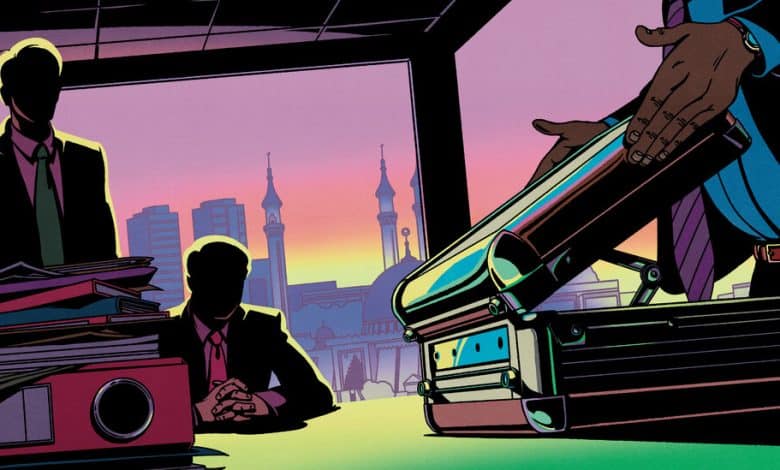How Two Irish Businessmen Almost Took Nigeria for $11 Billion

Like a lot of explosive financial scandals, the story of Michael Quinn and Brendan Cahill could fairly be described as a simple proposition that spun completely out of control.
Listen to This Article
Open this article in the New York Times Audio app on iOS.
Quinn was an Irish oil-and-gas man with warm eyes and a mustache; Cahill was his longtime partner, an accountant by training. The two had been working in Nigeria since the 1970s, doing small-time deals in the energy and defense sectors, like fixing tanks and siting oil wells. But in the mid-2000s, they spied a bigger opportunity. They knew that Nigeria’s refineries were burning off most of the gas that was recovered during oil drilling — a practice that poisoned the atmosphere and deprived the country of a source of electricity. Quinn and Cahill proposed a “gas leaning” plant, which would take in the “wet” gas that would otherwise be flared and spit out “lean” gas that could actually power the grid. It would transform waste into fuel.
Quinn and Cahill founded a new company for this purpose and gave it a forgettable name, Process and Industrial Developments Ltd. The two worked out of an office in Abuja, Nigeria’s capital. But P.&I.D.’s legal address was a P.O. box on Tortola, in the British Virgin Islands. This could shield the new entity from taxes and scrutiny, while also making it easier to raise capital on the international markets.
The next step was to draw a proposal for the Ministry of Petroleum Resources, the department that oversees Nigeria’s considerable fossil-fuel reserves. P.&I.D. would construct the $500 million facility. Nigeria would pipe in wet gas at no cost to the company. Then P.&I.D. would process it and pipe out the lean gas at no charge to the country. But in return, the company would retain the valuable byproducts of the gas-leaning process, like propane and butane, which it could sell at a profit. If Nigeria backed out at any point before the full 20-year term of the contract, it could be held liable for damages. Taken as a whole, it looked like an enormous commitment for Nigeria, one that might be met with skepticism when it finally met the eyes of the ministry’s lawyers.
Around this time, a lawyer named Grace Taiga landed a new job at the ministry, as legal director. This was fortunate, because Quinn and Cahill had known Taiga for years, ever since she was at the Ministry of Defense and they were businessmen who occasionally won contracts from it. For about a year leading up to the submission of P.&I.D.’s proposal, Quinn and Cahill sent Taiga and one of her daughters just a bit more than $25,000 in incremental payments. Quinn also took Taiga’s colleague, a Ministry employee named Taofiq Tijani, to dinner at Chopsticks, a Chinese restaurant in Abuja. The cost of that dinner was recorded in accounting books as $2,800. (A Chinese dinner does not cost $2,800 in Abuja.) Then, shortly before the contract was signed, Cahill sent another $5,000 from a bank in Cyprus to Taiga’s daughter’s account, which was coded as a “commission payment.”
We are having trouble retrieving the article content.
Please enable JavaScript in your browser settings.
Thank you for your patience while we verify access. If you are in Reader mode please exit and log into your Times account, or subscribe for all of The Times.
Thank you for your patience while we verify access.
Already a subscriber? Log in.
Want all of The Times? Subscribe.